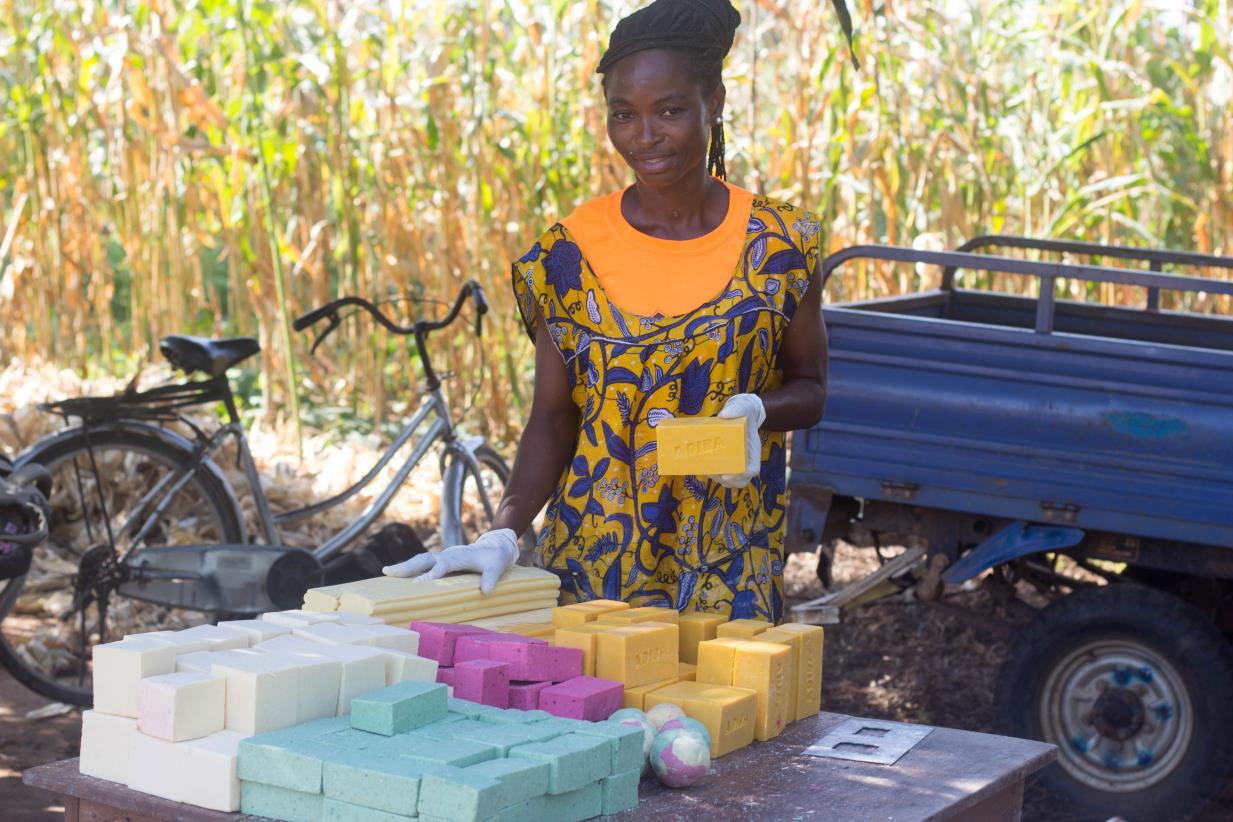How shea products are boosting Ghanaian women’s livelihoods
She had started her business with USD 68 of savings, but less than two months later, the young entrepreneur raked in a hefty profit.

Now she is an advocate and employer of other rural women, promoting sustainable livelihoods that can offset deforestation in her region. ©KANBAOCU/Clifford Amoah Adagenera
"I was about three years old when I lost my mum. I did not even know her,” says Rita Adibamoli Abarjawe, a 29-year-old single mother from the Kasena Nankana district of Ghana. “Growing up, I went through a lot of stress and financial crises. Sometimes even having food was a challenge.”
After her mum died, Rita was raised by her father and stepmother, both small-scale farmers. But as her father and stepmother grew older, they were unable to farm any longer and, at the age of 24, providing for the family became Rita’s responsibility. She also had a three-year-old daughter and her brother and his children to take care of.
To make ends meet, she began supporting her stepmother in producing shea butter. Making shea butter is a skill often passed on from generation to generation, and it is common for female farmers to make products for their own household use and income. For Rita, however, getting involved in this trade gave her the knowledge and impetus to start a new business, which proved an invaluable livelihood for her family.
Small business in soap-making
After learning the basics of the trade, Rita joined her local cooperative where she was selected to attend a training on soap-making organized by the Kasena Nankana Baobab Cooperative Union (KANBAOCU), a local forest products organisation that works in baobab and shea value chains. Funded by FAO’s Forest and Farm Facility (FFF), the training developed young people’s skills in making soap from shea and encouraged young women to go into entrepreneurship.
